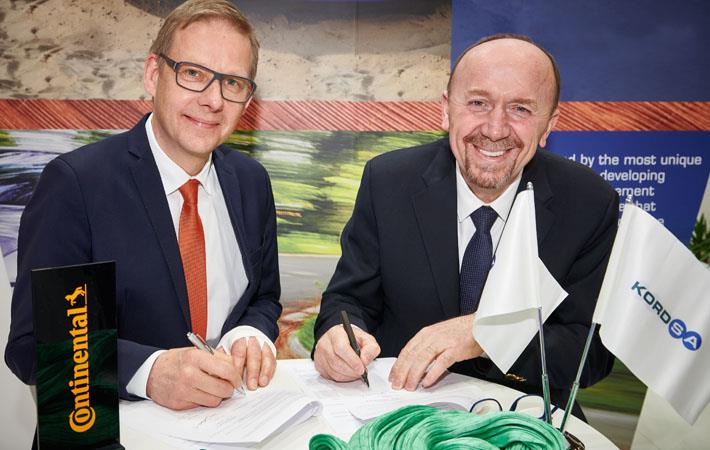Continental and Kordsa, a leader in the tire reinforcement technologies market, have developed a sustainable adhesive technology standard for bonding textile reinforcing materials with rubber compounds. Reinforcing materials of this kind are used in the tire industry, as well as in the production of mechanical rubber goods like hoses and conveyor belts.
The new technology enables the bonding activation of textile reinforcing materials without the use of resorcinol and formaldehyde, Kordsa said.Continental and Kordsa, a leader in the tire reinforcement technologies market, have developed a sustainable adhesive technology standard for bonding textile reinforcing materials with rubber compounds. Reinforcing materials of this kind are used in the tire industry, as well as in the production of mechanical rubber goods like hoses and conveyor belts.#
Continental intends to manufacture the first series-produced tires using this technology in 2019. The two development partners are offering the new bonding system technology to all other tire manufacturers and the supplier industry as an open source solution under the brand name Cokoon. Free licensing will be handled by the independent law firm Advinno. Continental and Kordsa have chosen to waive development or licensing fees. In return, they expect licensees to make their patents concerning the further enhancement of this technology available to the other partners free of charge via a licensing pool. Interested companies can request first lab samples now.
“We need to break new ground to master the upcoming challenges the future will hold. The tire industry can send out a clear signal of its responsibility and innovative power by joining to this environmentally friendly open source technology,” Andreas Topp, vice president material and process development and industrialisation at Continental said.
Until now, the chemicals resorcinol and formaldehyde have been irreplaceable in the bonding activation of textile reinforcing materials to ensure robust adhesion to the surrounding rubber matrix. As these substances are chemically altered by the vulcanisation process, they do not escape from the finished products into the environment. With Cokoon dip technology, however, the bonding of textiles to rubber is now possible without these two substances and can be applied without changing process equipment. (GK)
Fibre2Fashion News Desk – India


